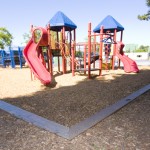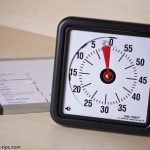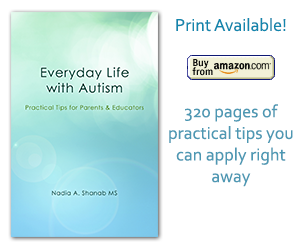Nadia Shanab | autism, general advice, parenting
There is a misconception about children with autism and relationships. Autism comes from the Latin word “auto” which means “self”. This is why children with autism have been attributed the unsociable characteristic: the word “auto” implies selfishness. However, in reality, these children are interested in having friends, holding conversations, and learning about their environment. The
[read more]
Nadia Shanab | autism, general advice, parenting, tips
One of the most characteristic traits of autism is rigidity, inflexibility, love for sameness and repetitive behavior. Why? Because it is easier to redo something than do something new. Even neurotypical people have a hard time making changes in their lives. It is easier to keep a routine. Change always comes with some effort. Tips
[read more]
Nadia Shanab | autism, general advice, parenting
10- Ball Chair It is a big rubber ball seated on a four wheels base. Instead of sitting on a regular chair, fidgety agitated kids can enjoy sitting quietly and calmly on ball chairs. They are rare in special education classes because they are expensive. 11- Play Dough A great learning tool. Rolling, squeezing and
[read more]
Nadia Shanab | autism, general advice, parenting
This article is part II of a series of articles on sensory problems. Click here to read Part I. 5- Compressions and Hand Massage The compression techniques I’ve learned from the occupational therapist are very simple to implement. Educators and parents can do it very easily. Here are the rules: Compressions are applied on the
[read more]
Comments Off on Continued: Tips for Sensory Problems
Nadia Shanab | autism, general advice, parenting
These simple tools can be used at school and at home. They are easy to acquire and they don’t take too much room. 1- The “Write-on Wipe-off” board I simply called it the “white board”. I bought it at Lakeshore (it is learning store) www.LakeshoreLearning.com for $4.95, it is a two sided board, one is lined
[read more]
Nadia Shanab | autism, general advice, parenting
This is a list of things you can do or use to help children with sensory disorders. I will talk in more details about each one in future articles: “Write-on wipe-off” board Weighted vest Trampoline Massager Compressions and hands massage Bubbly cushion Bouncing ball Bean bag Bean tub Ball chair Play dough Balance beam Physical
[read more]
Nadia Shanab | autism, general advice, parenting, tips
What appears to us as a misbehavior, is in fact a reaction of autistic children to their overwhelming environment. Often times they are oversensitive (hypersensitive). On the other hand, they can be indifferent to the input to their senses or under sensitive (hypo sensitive). If they get overstimulated they try to do anything to self-regulate
[read more]
Nadia Shanab | autism, parenting, tips
One of the world’s most famous contemporary artists is an autistic man named Stephen Wiltshire. He was mute in his early childhood and used to throw severe temper tantrums. He lived in his own world and never related to other human beings. At the age of three he was diagnosed with autism and he had
[read more]
Nadia Shanab | autism, parenting, tips
When you tell a child — especially with special needs — “don’t“, you leave her/him with no options. When you give an alternative or a substitute, you are giving her/him an opportunity to correct or modify the inappropriate behavior or action. What should you do? Use the affirmative form instead of the negative form when you
[read more]
Nadia Shanab | autism, parenting, tips
Autistic children rely intensively on their visual skills. I always make sure to use a visual timer along with the daily schedule. The visual timer has the advantage of giving a real feeling of time. It helps estimate the elapsed time and anticipate the remaining time. It compares to the difference between a digital watch
[read more]







